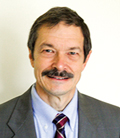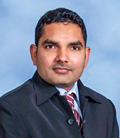Advanced cooling tower water treatment—Part 1
Refineries, petrochemical plants and similar facilities rely on a significant number of heat exchangers for process control and product formulation throughout the plant.
IP: 10.1.159.171
This is a preview of our premium content. Thank you for your interest—please
log in or
subscribe to read the full article.
The Authors
Post, R. - ChemTreat, Philadelphia, Pennsylvania
Raymond M. Post is the Director of Cooling Water Technology at ChemTreat Inc. He has more than 40 yr of experience in industrial water treatment. He holds three U.S. patents and has authored more than 50 technical papers on industrial water treatment. Mr. Post is a licensed professional engineer and a member of the Cooling Technology Institute and the National Society of Professional Engineers. He holds a Bch degree in chemical engineering from Princeton University.
Kalakodimi, R. P. - ChemTreat, Ashland, Virginia
Rajendra P. Kalakodimi received an MS degree in physical chemistry at Andhra University and a PhD in electrochemistry at the Indian Institute of Science in Bangalore in 2003. Dr. Kalakodimi is the Director of Applied Technology for ChemTreat Inc., in Ashland, Virginia. Prior to joining ChemTreat, he served as the Engineering Technical Leader at the GE India Technology Center in Bangalore and as a Product Manager for Chemicals and Monitoring Solutions
for GE Water. He has more than 20 patent filings, 20 international publications and various conference presentations.
Buecker, B. - ChemTreat, Lawrence, Kansas
Brad Buecker is a Senior Technical Publicist with ChemTreat. He has many years of experience in or affiliated with the power industry, much of it in steam generation chemistry, water treatment, air quality control and results engineering positions with City Water, Light & Power (Springfield, Illinois) and Kansas City Power & Light Co. Mr. Buecker earned a BS degree in chemistry from Iowa State University, with additional course work in fluid mechanics, energy and materials balances and advanced inorganic chemistry. He is a member of the American Chemical Society, American Institute of Chemical Engineers, the American Society of Mechanical Engineers, the Cooling Technology Institute, the National Association of Corrosion Engineers, the Electric Utility Chemistry Workshop planning committee and the International Water Conference Advisory Council. Mr. Buecker has authored many articles and three books on power plant and water/steam chemistry.
Related Articles
From the Archive









Comments